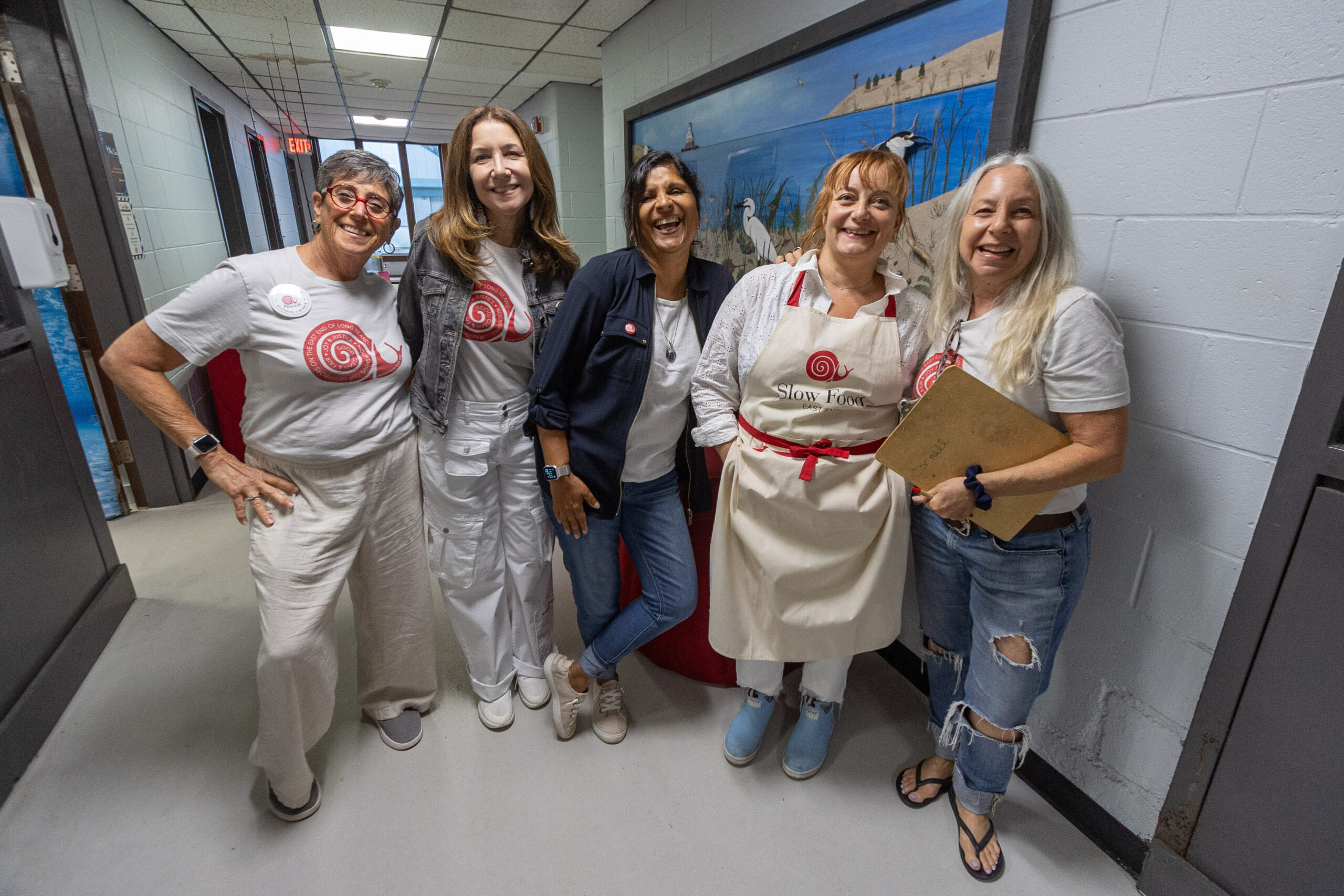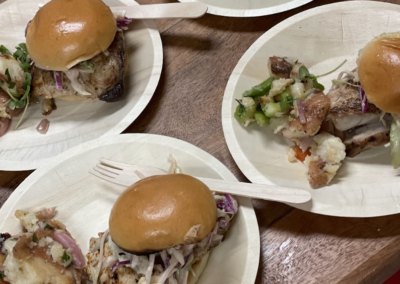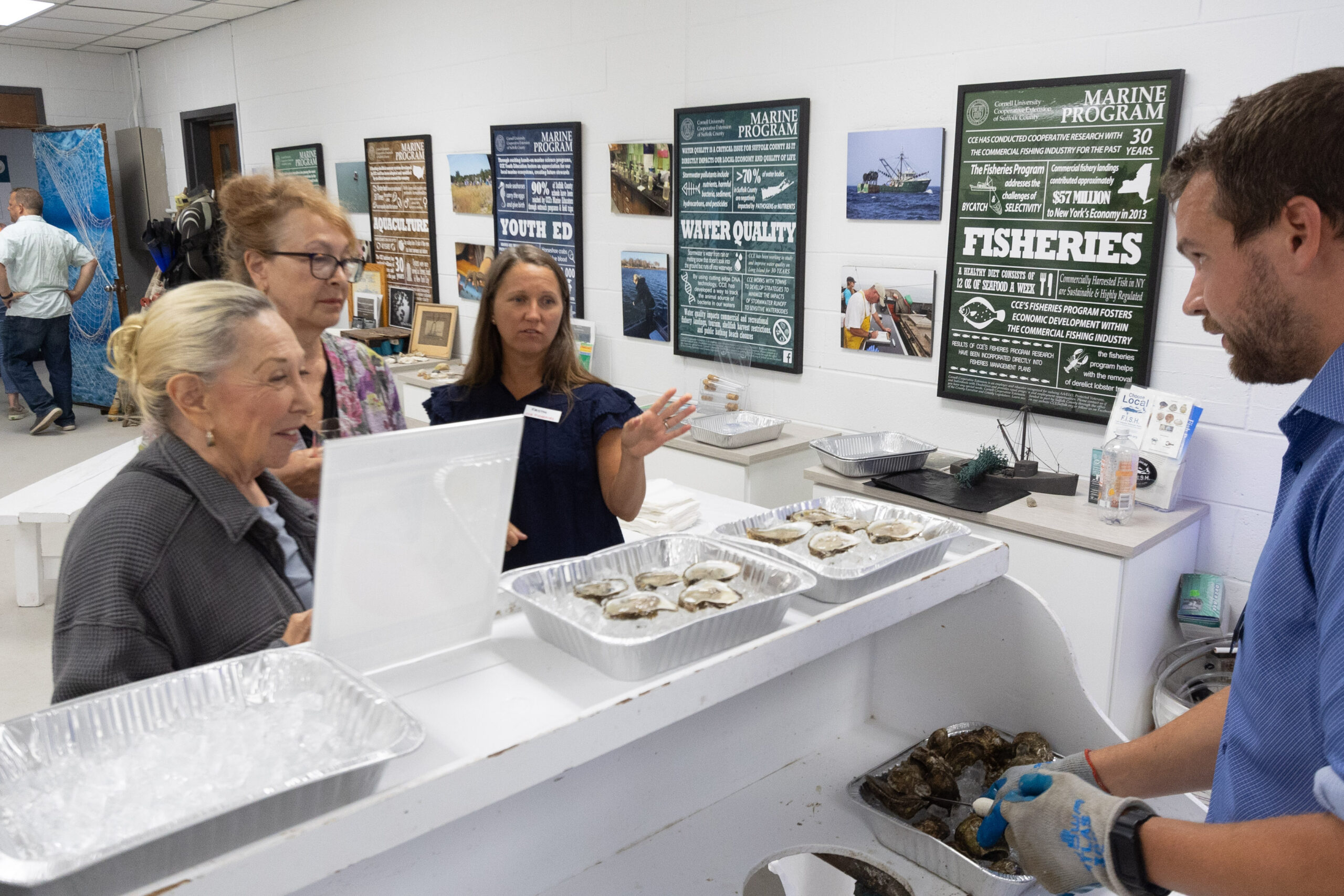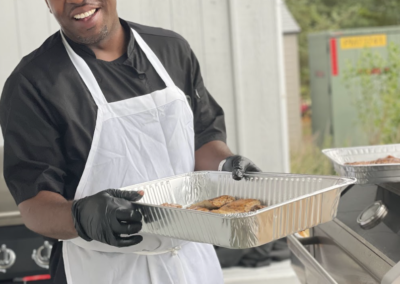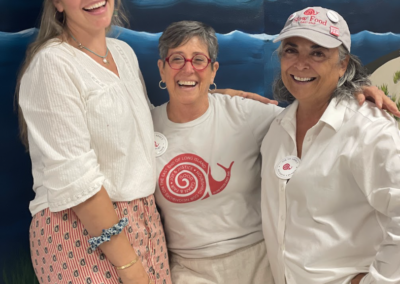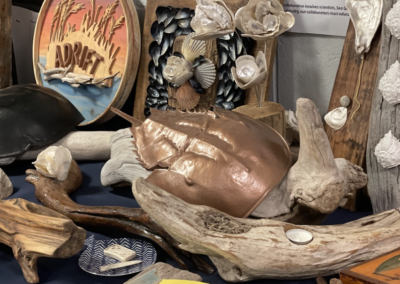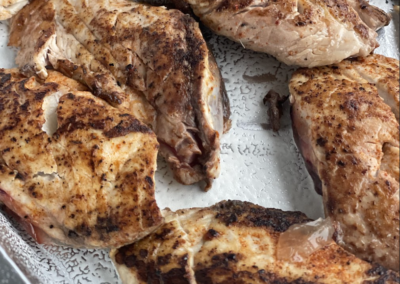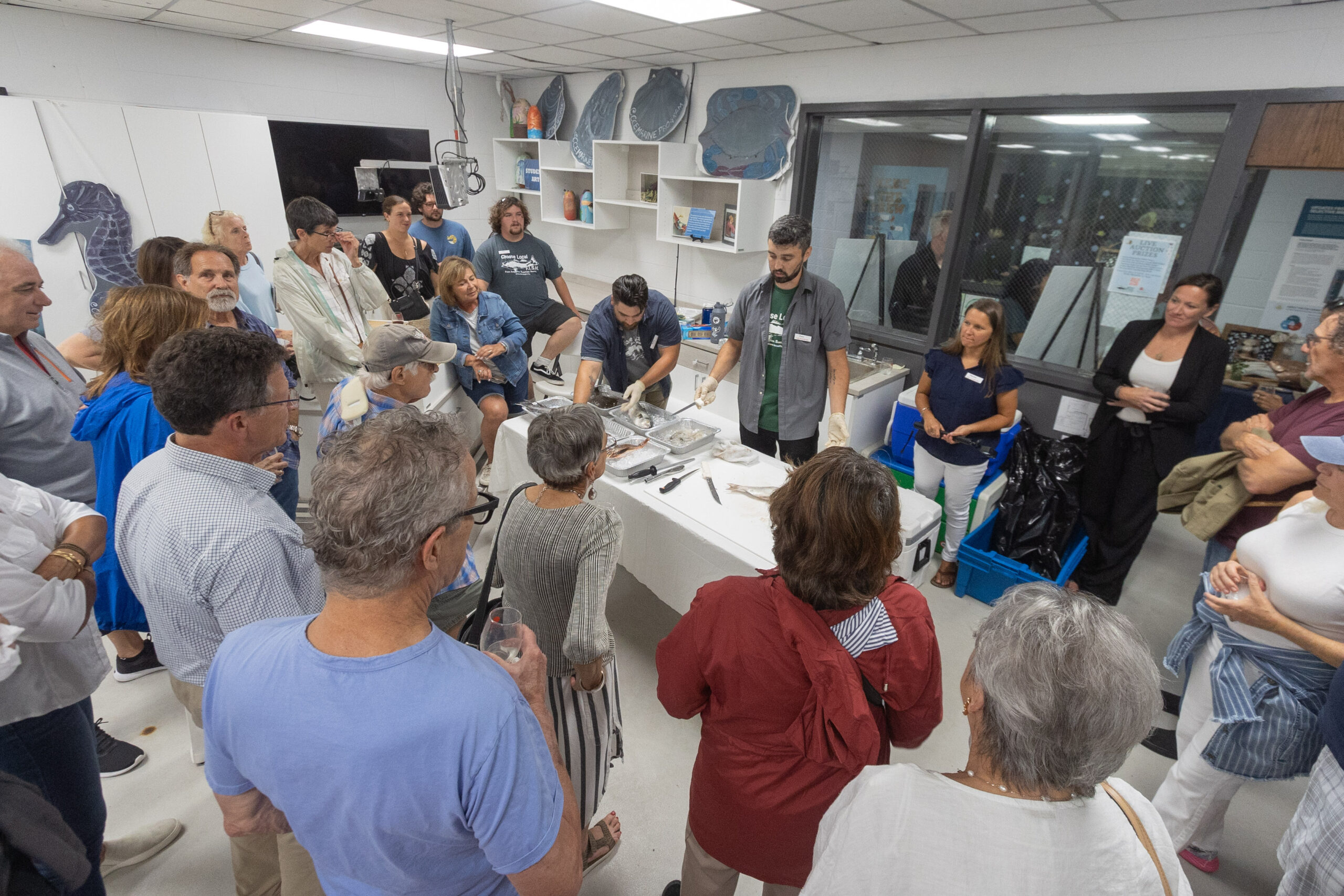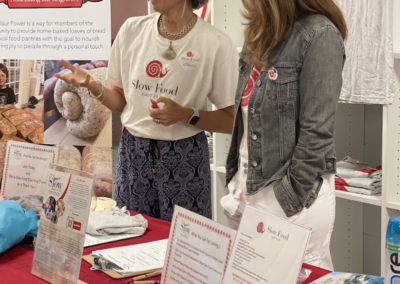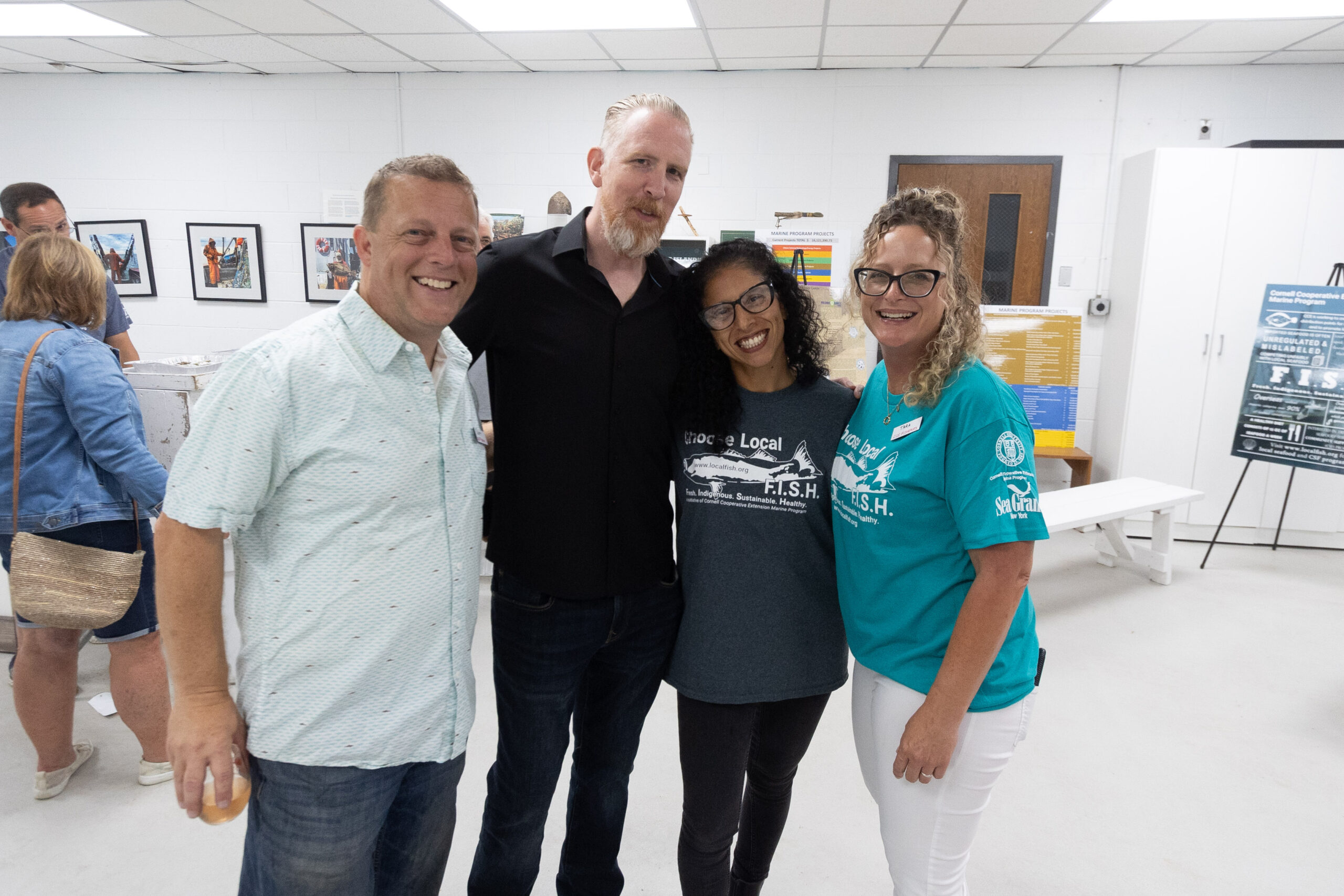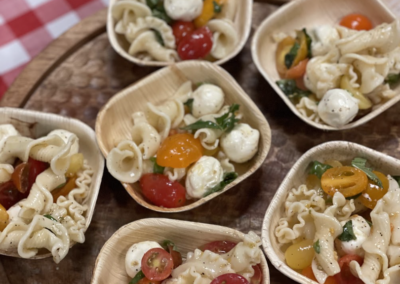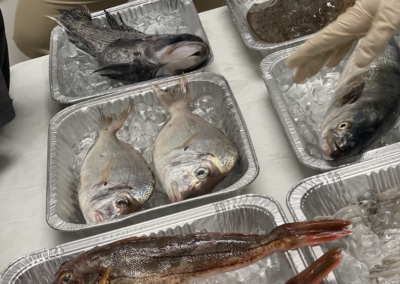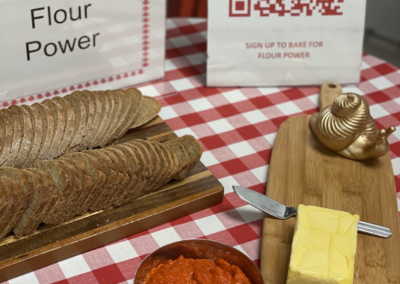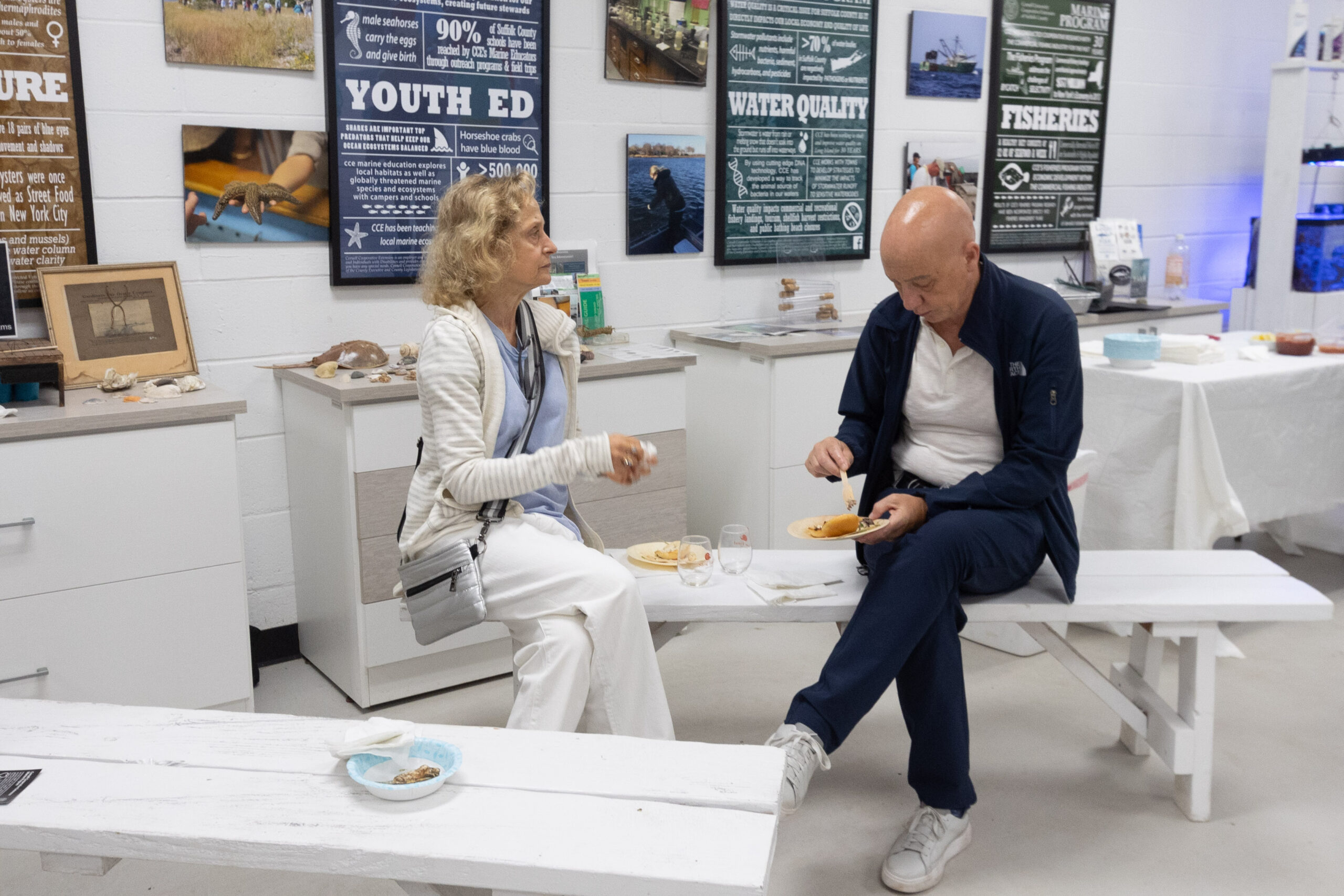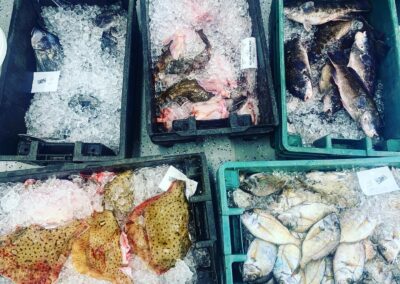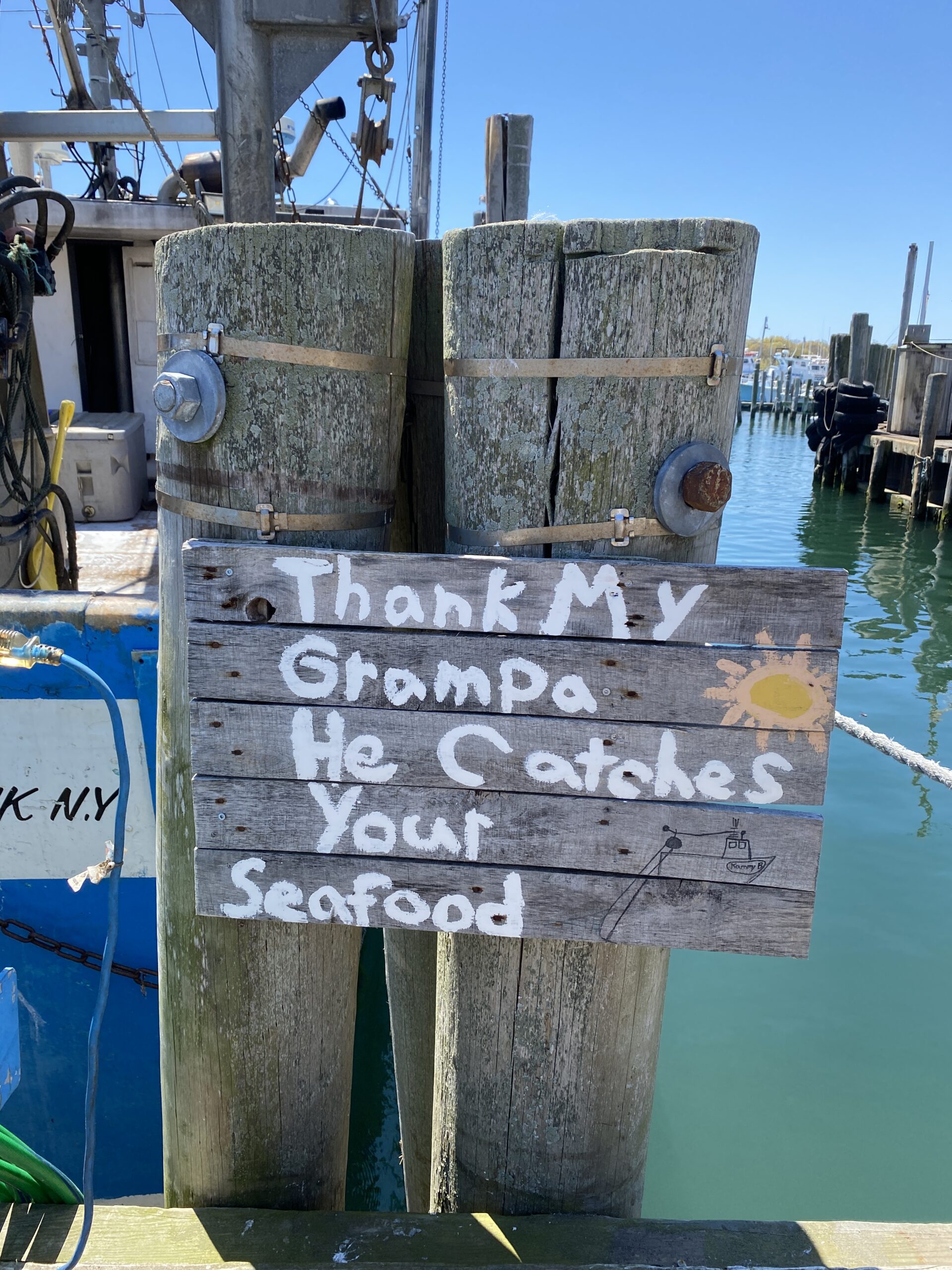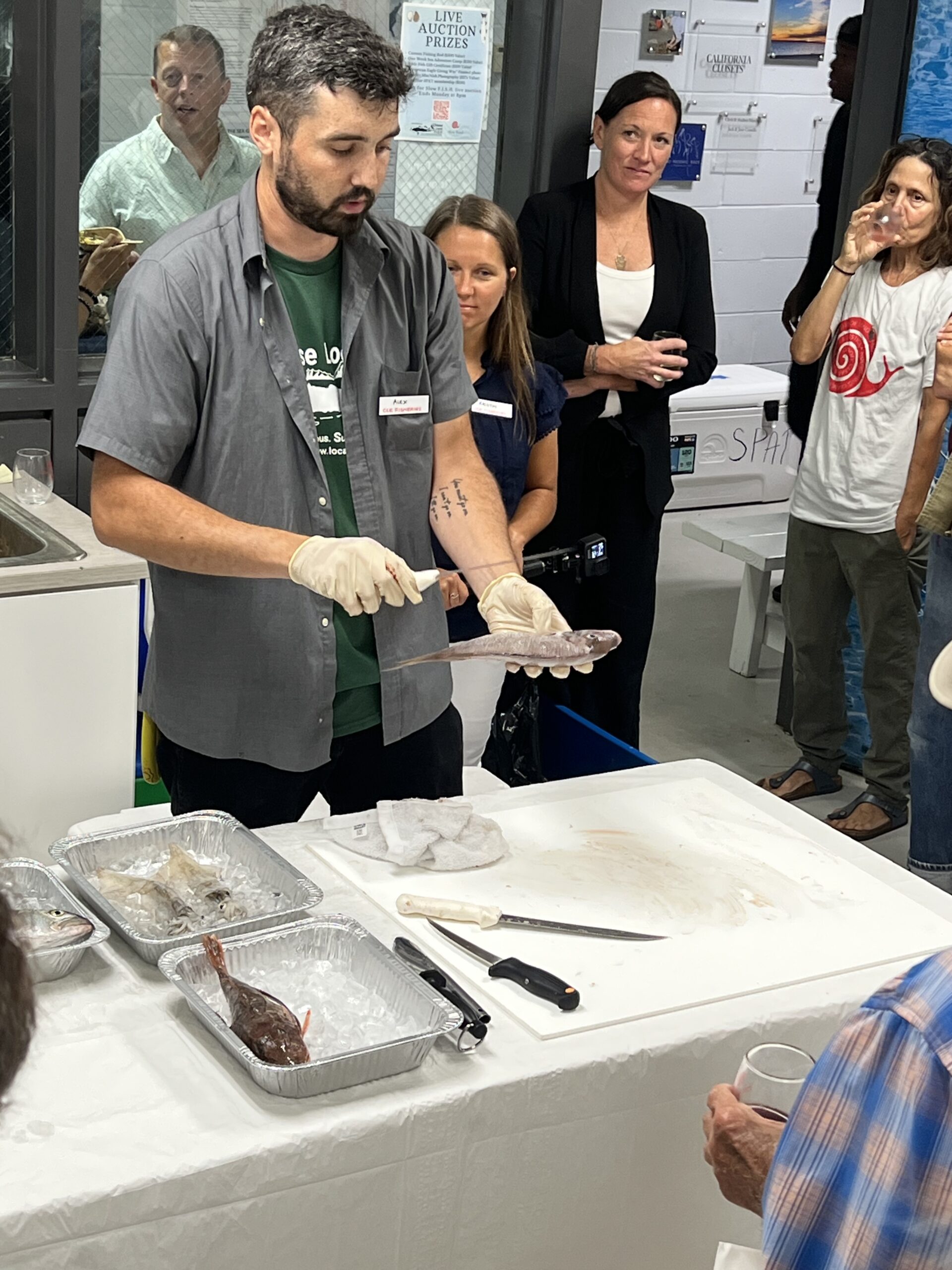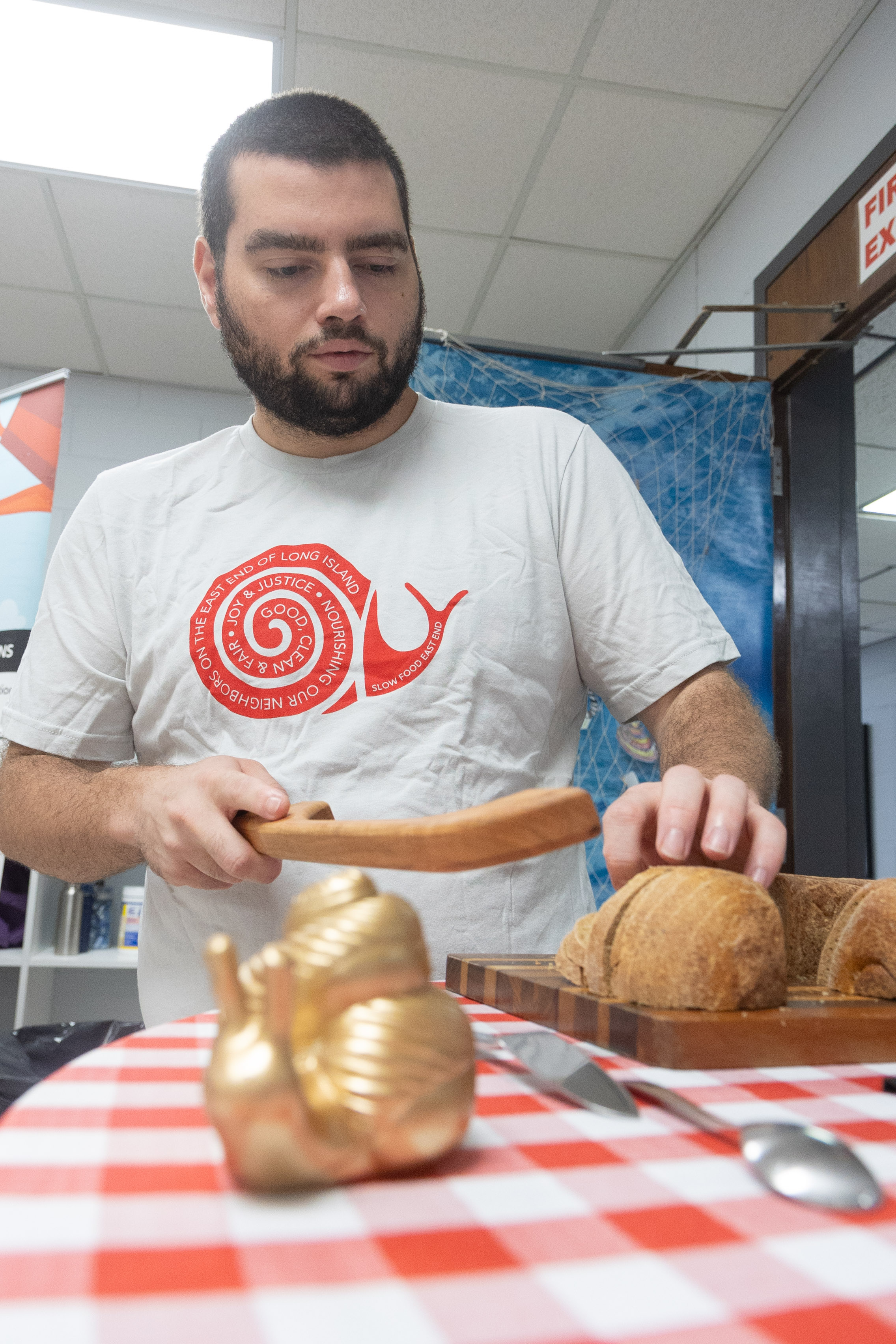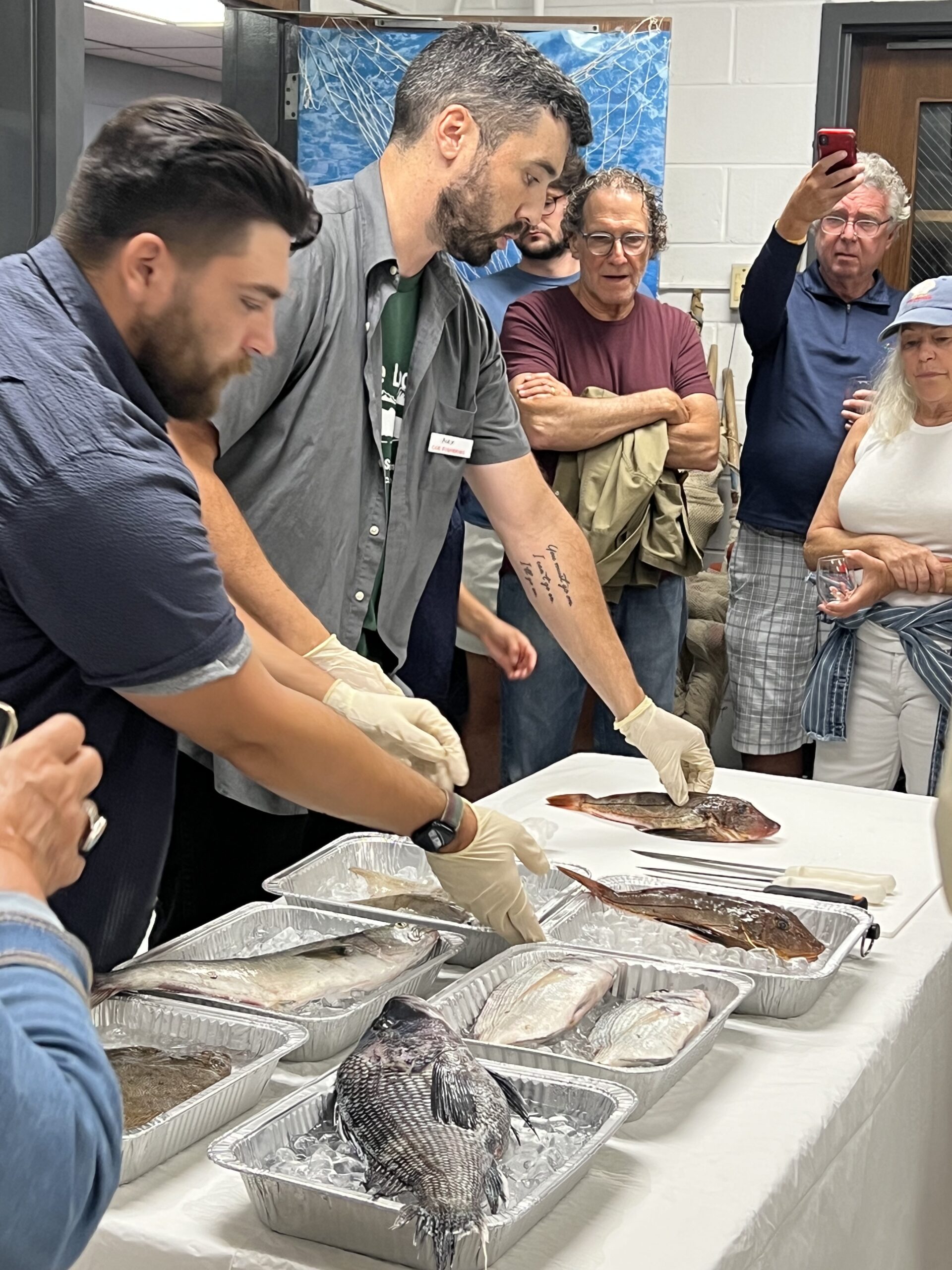
Seafood was on the menu and everyone’s mind as our Slow Food family and friends at the Suffolk County Marine Environmental Learning Center came together to enjoy a night to celebrate our unique East End Merroir. We tasted oysters from four different local merroirs and incredible fresh local seafood dishes, all paired with local wines while learning so much about sustainable fishing operations in our local waterways.
Our knowledgeable friends at Cornell Cooperative Extension located along the scenic shores of Cedar Beach in Southold study our local waters looking for solutions to keep them healthy, productive, and sustainable so they remain that way for years to come. Commercial and recreational harvesting of seafood is a way of life on Long Island so preserving the viability of this industry and essential food source is critical for our community and marine resources.
Presentations by Cornell Fisheries and Aquaculture specialists were informative and engaging. We learned about Cornell’s “Choose Local F.I.S.H.” (Fresh. Indigenous. Sustainable. Healthy) initiatives to encourage all to discover the variety of local fish choices Long Island has to offer.
Purchasing local seafood enables consumers to know the direct origin of their food. Increased marketing of local seafood supports the economic viability of our coastal fishing communities and small businesses and boosts the economic value of Long Island’s seafood industry while providing consumers with fresher and higher-quality seafood. When purchasing locally caught fish, you can be sure that fish is sustainably harvested and in compliance with U.S. and state regulations which are some of the strictest in the world. So do eat more local seafood!
Guests toured the amazing hatchery, where tens of millions of oyster seeds are hatched, raised, fed, and released each year. These remarkable shellfish are natural water purifiers, each adult filters about 50 gallons of water a day making oysters among the most sustainable seafoods on earth. The CCE hatchery has perfected nurturing the minuscule shellfish seeds in containment away from predators to be released when they reach adult size into local creeks and bays to promote wild settlement. The staff also developed the community SPAT program to enlist community members to learn to grow oysters. Over 1000 locals have taken part in the program so far, many going on to start their own oyster companies. If you are interested in fostering thousands or so babies, new SPAT memberships are available each year.
Four oyster companies provided shellfish, shucked to order by hatchery staff, it was wonderful to do side-by-side tastings to easily compare the distinct flavor differences between oysters harvested from farms in different local waterways. Served were: Davy Jones Shellfish, known for wild-caught and farm-raised oysters; Hampton Oyster Company specializing in deep-water, surface-grown oysters; Montauk Pearls which are seeded in Lake Montauk and followed by deep water finishing in Block Island Sound; and Peconic Gold Oysters which are raised in the beautiful Great Peconic Bay between the North and South forks.
No food tasting would feel complete without wine to accompany the flavors. From sparkling wine to white varietals, classic roses, and ruby reds everyone got to enjoy comparing a variety of wines donated by Long Island Wine Country wineries. We encourage all to enjoy the fruits of our local terroirs as LIWC celebrates 50 years of local viniculture this year.
The additional educational components rounded out the night’s festivities:
* We learned to filet a variety of local fish and to shuck like a pro!
* We were lucky enough to be able to ask the Cornell Marine experts all of our marine and aquaculture questions.
* We met artists and artisans who are inspired by the waters. Thank you Lisl Reuschle of Adrift Designs (@adrift_northfork) who creates art from beach finds, a special favorite was her handcrafted oyster spoons. Al Goldberg displayed his famous handmade custom fishing rods and discussed what rods were best for different waters and species. Al has been a member of the Slow Food East End family for years, he has taught so many local fishermen and hobbyists how to fish properly. Thank you to Rory MacNish, part of the Cornell family and an SFEE friend who donated art and his talents photographing the night.
Proceeds for this event helped support two amazing not-for-profit organizations, Slow Food East End Feed the Forks initiatives and Choose Local F.I.S.H programming.
Thank you to the local businesses who made donations to our raffle and auction:
Al Goldberg
We owe a big, delicious thank-you to Lombardi Catering of Love Lane Market. The amazingly beautiful spread they prepared for this event, kept us all happy and satisfied. We really enjoyed savoring the elegantly prepared fresh local fish sliders, salads, and other dishes. Owner Lauren Lombardi is known for her hospitality and delicious locally sourced menus but Lauren has also long been a supporter of Slow Food East End and was previously on the board of Slow Food East End.
Thank you also to At Your Service Party Tents and Events for donating essential and helpful rentals for our special event. If you are located on the East End and looking to support a local business that is ready to take care of all your rental needs, give the new owner, Steve Winick a call AYSPR is located in Mattituck.

